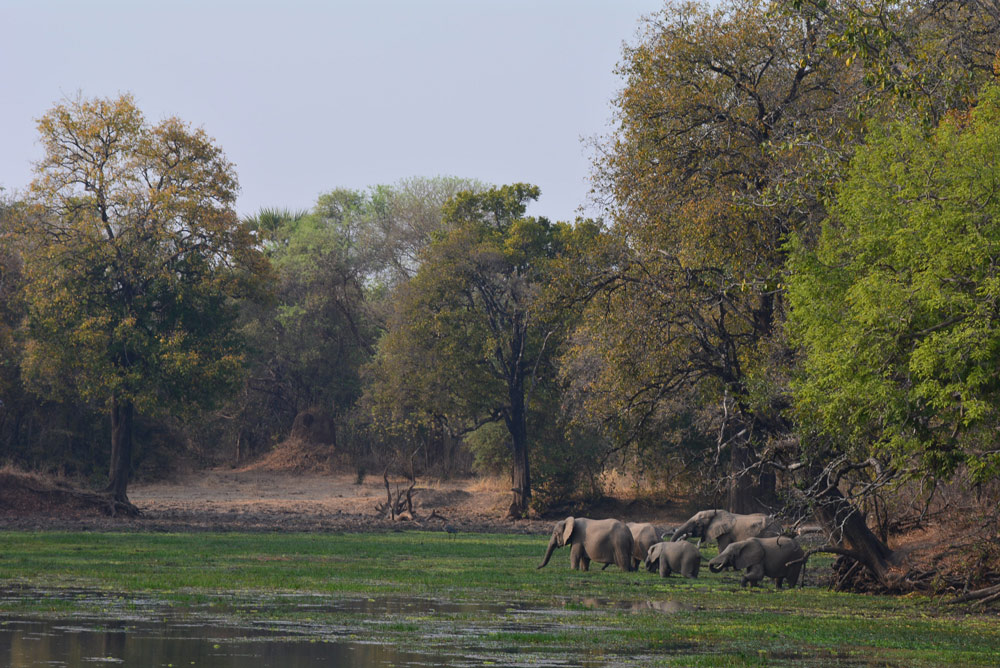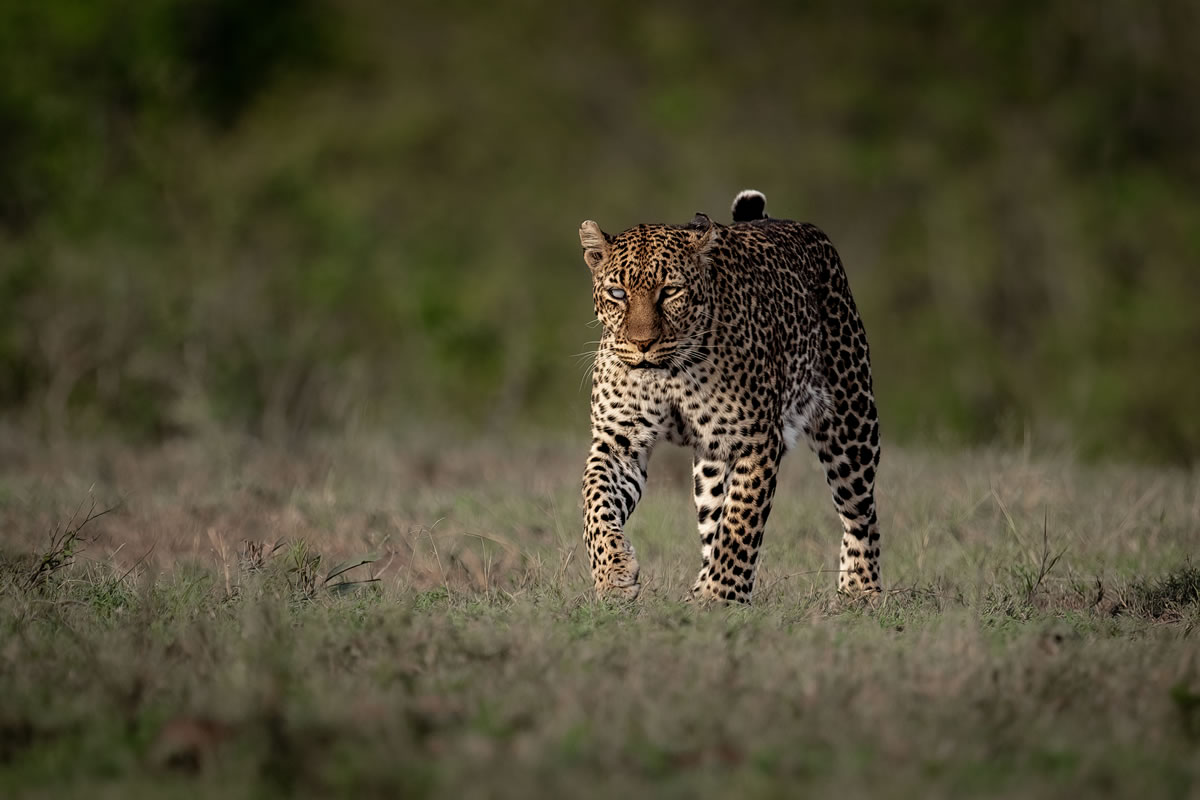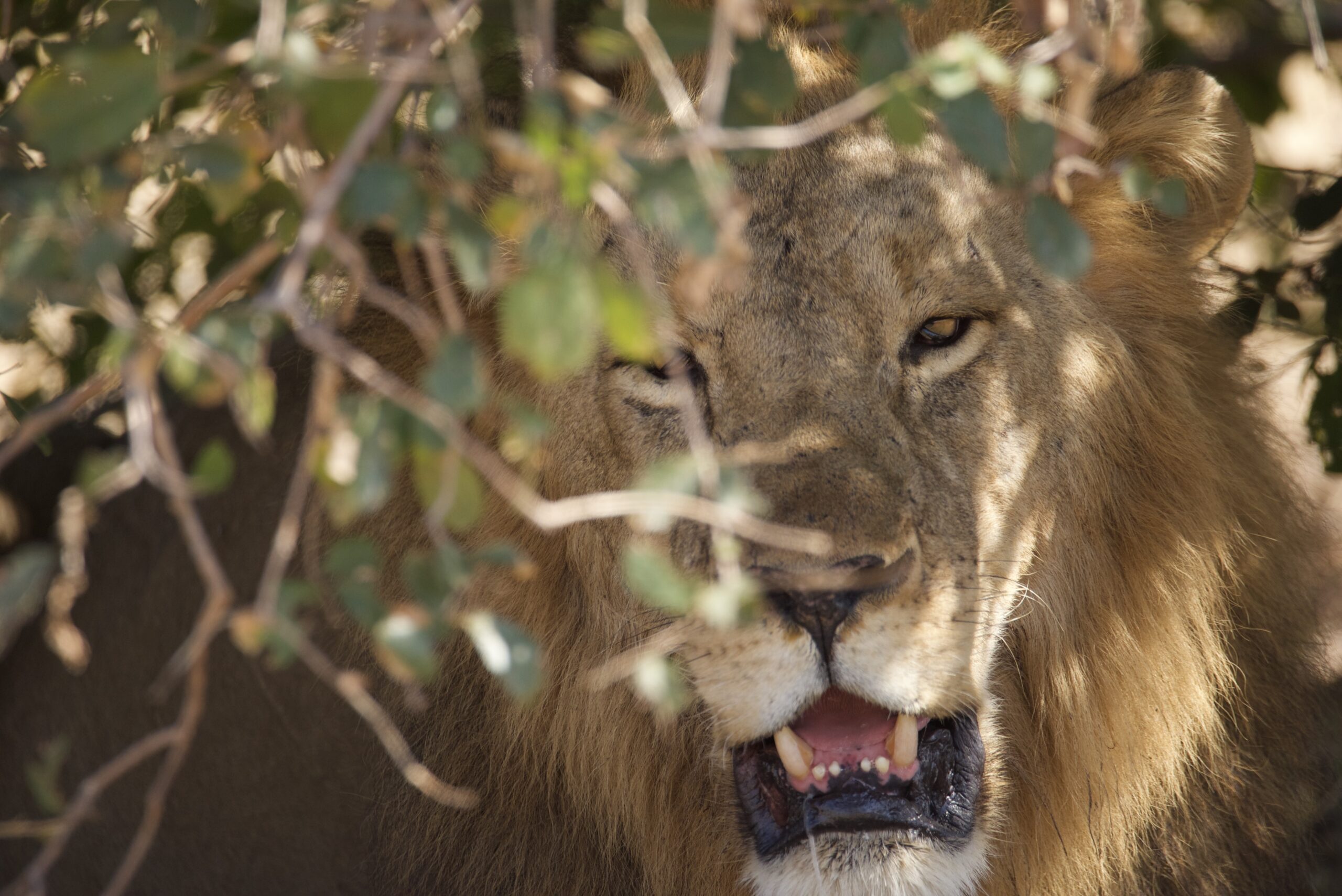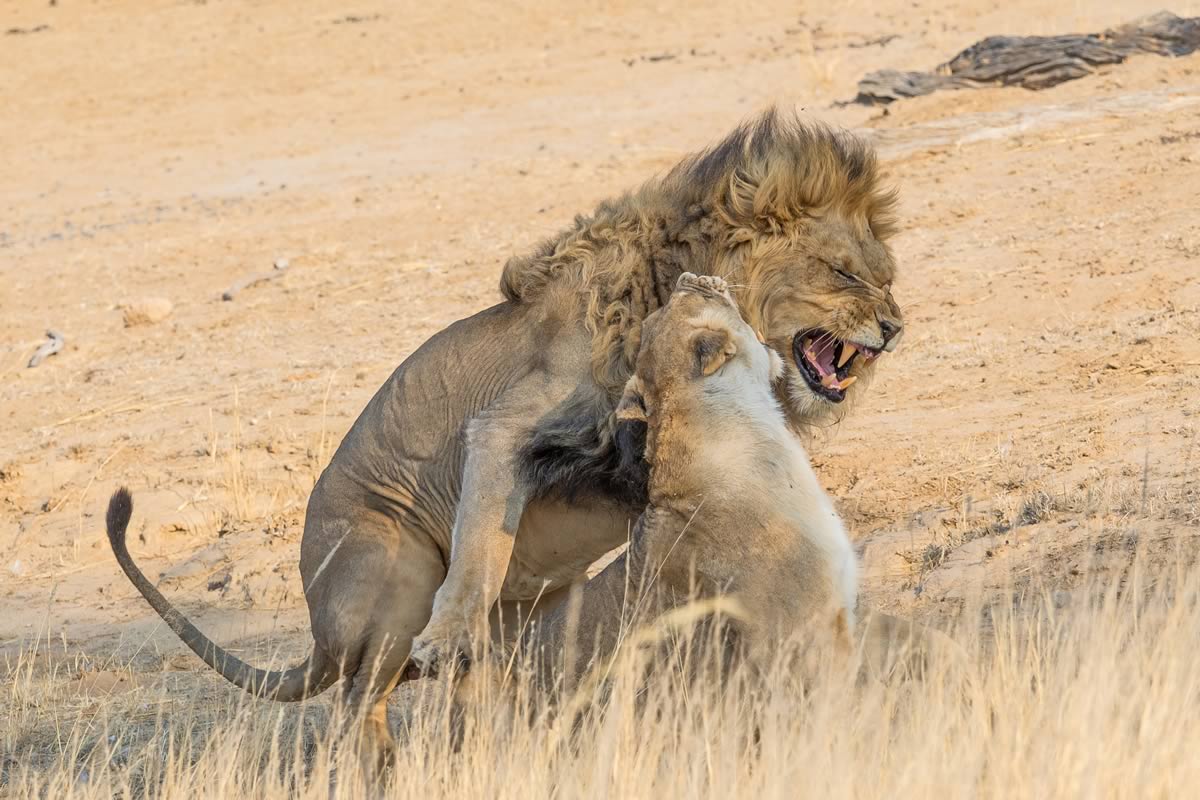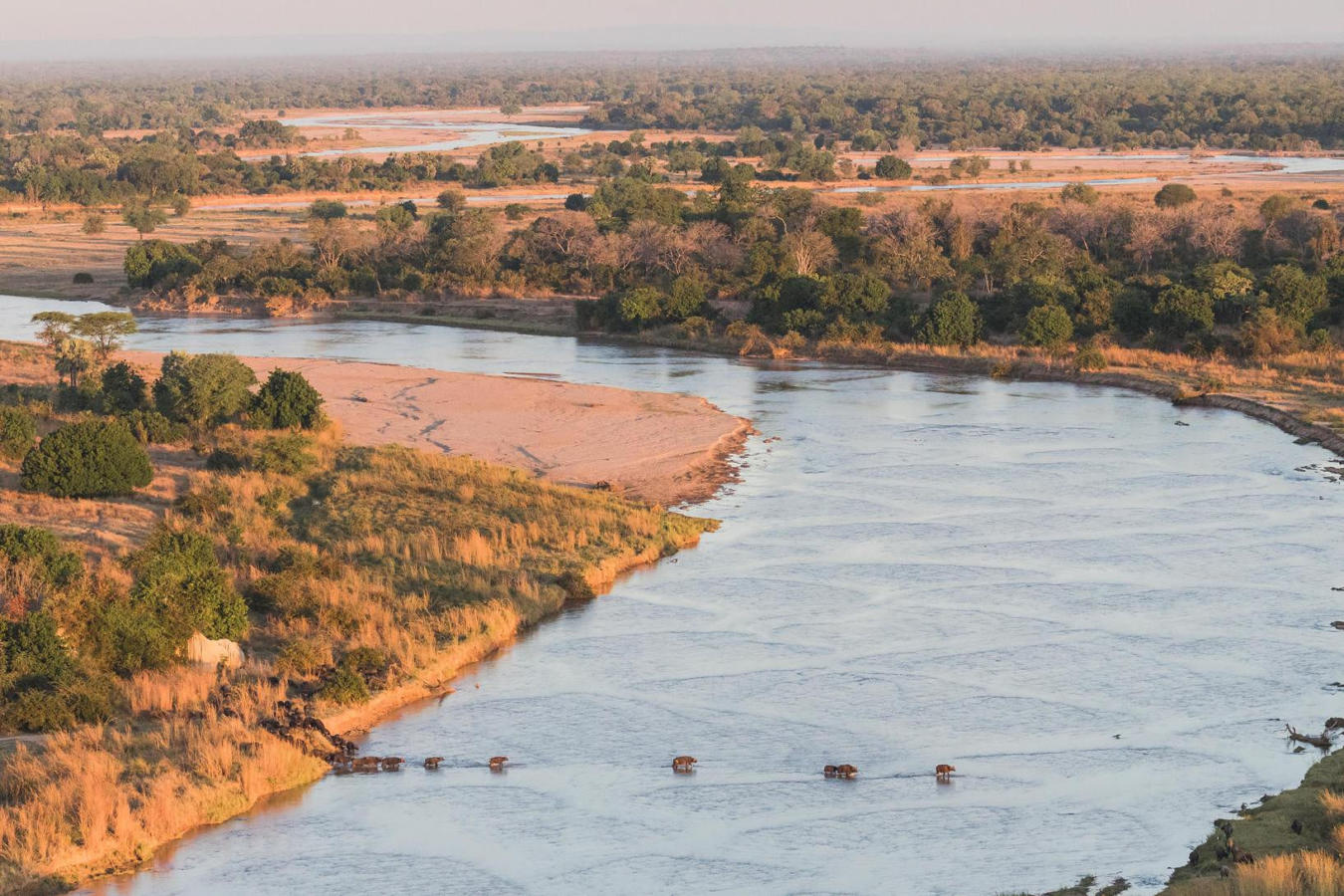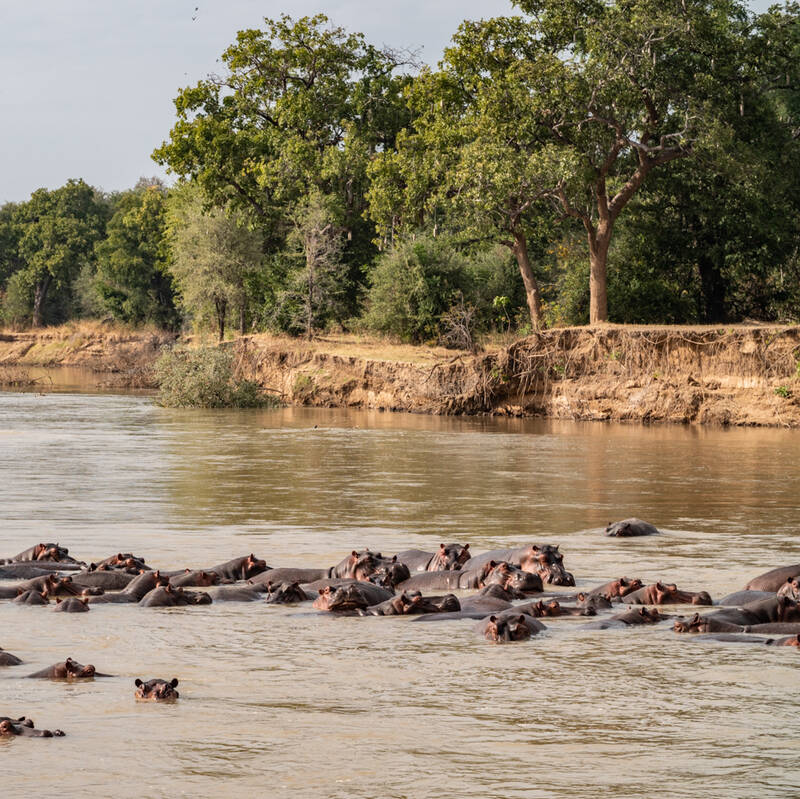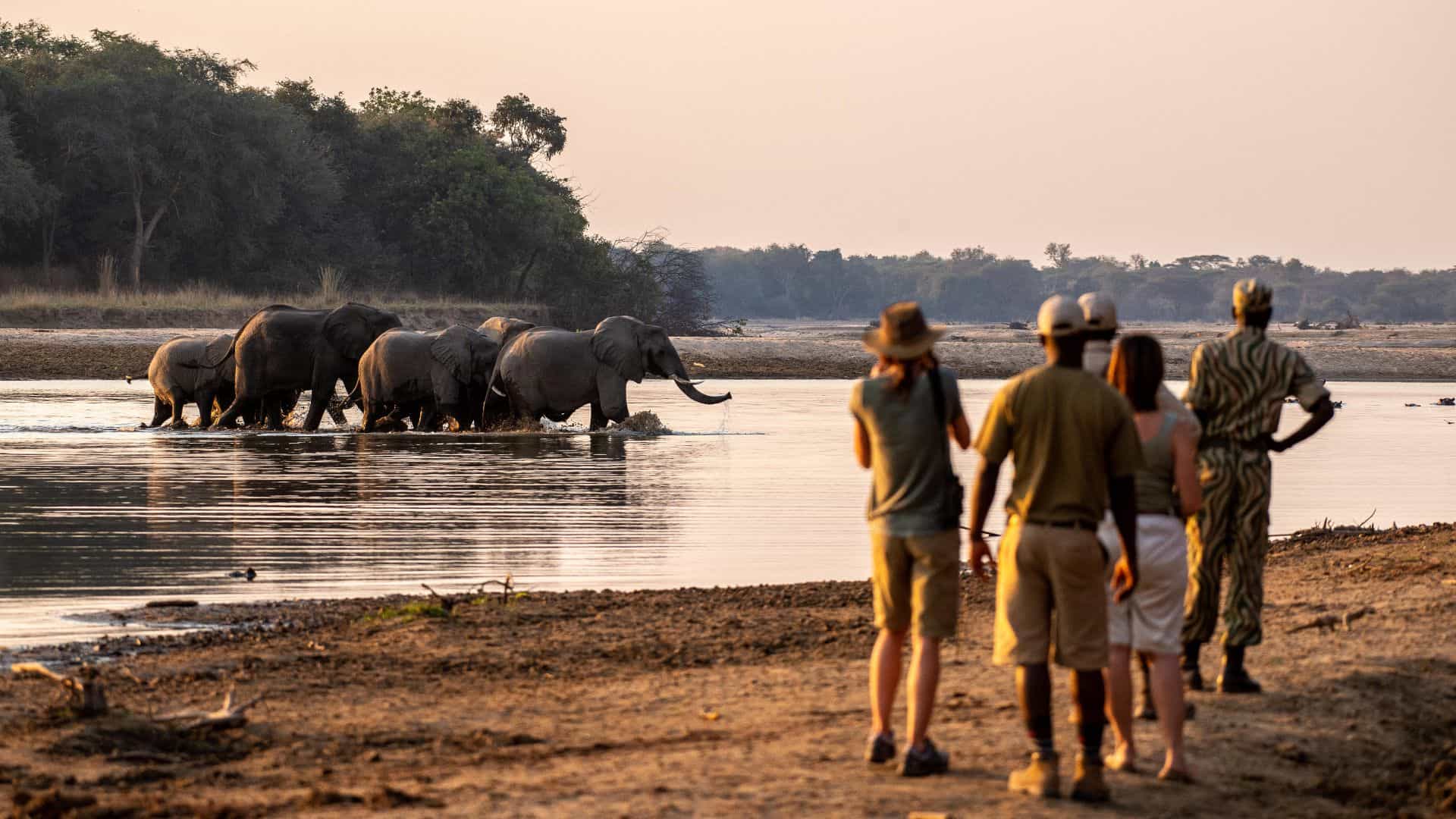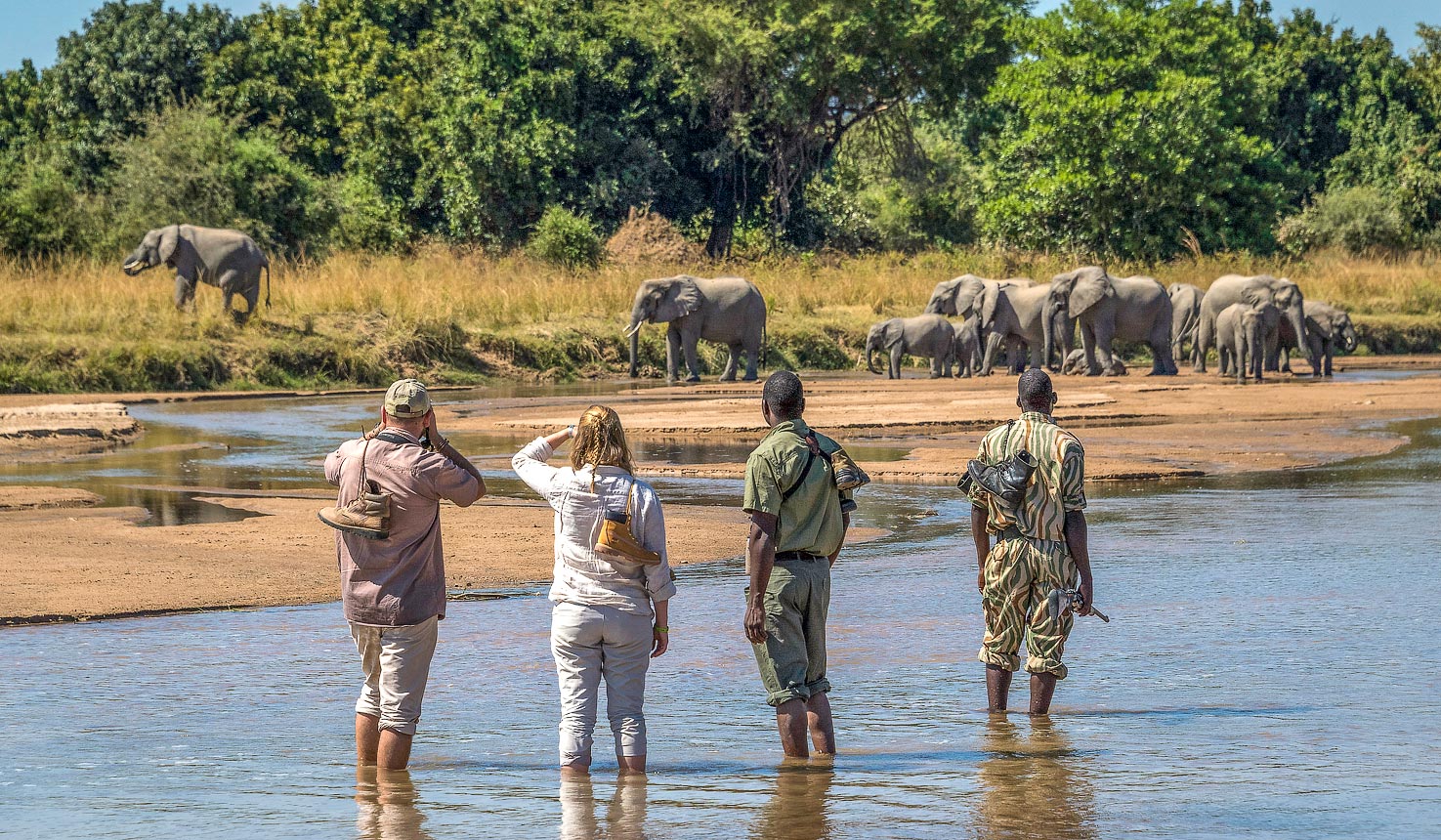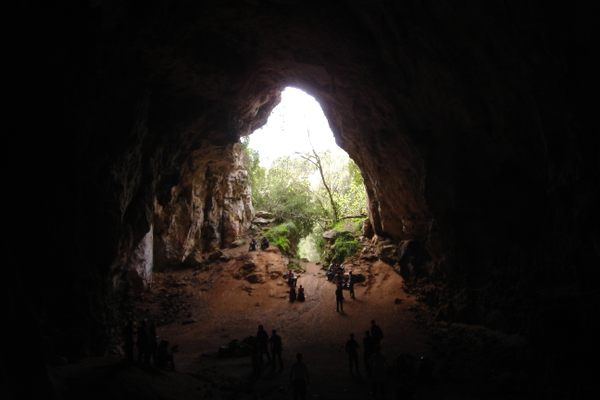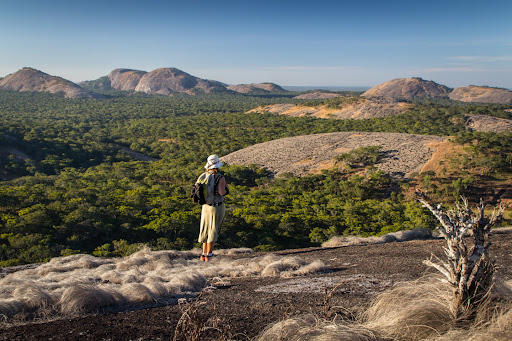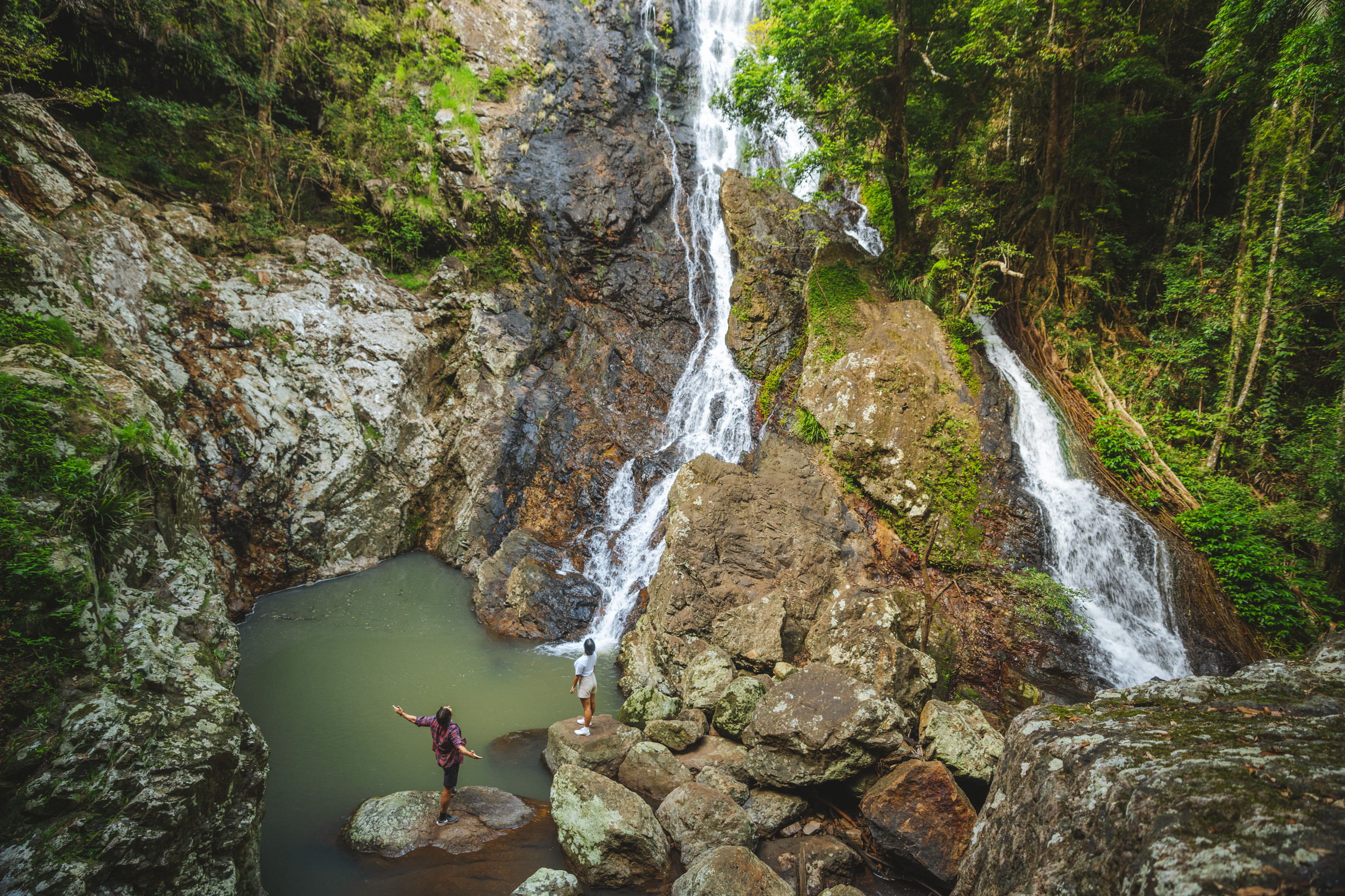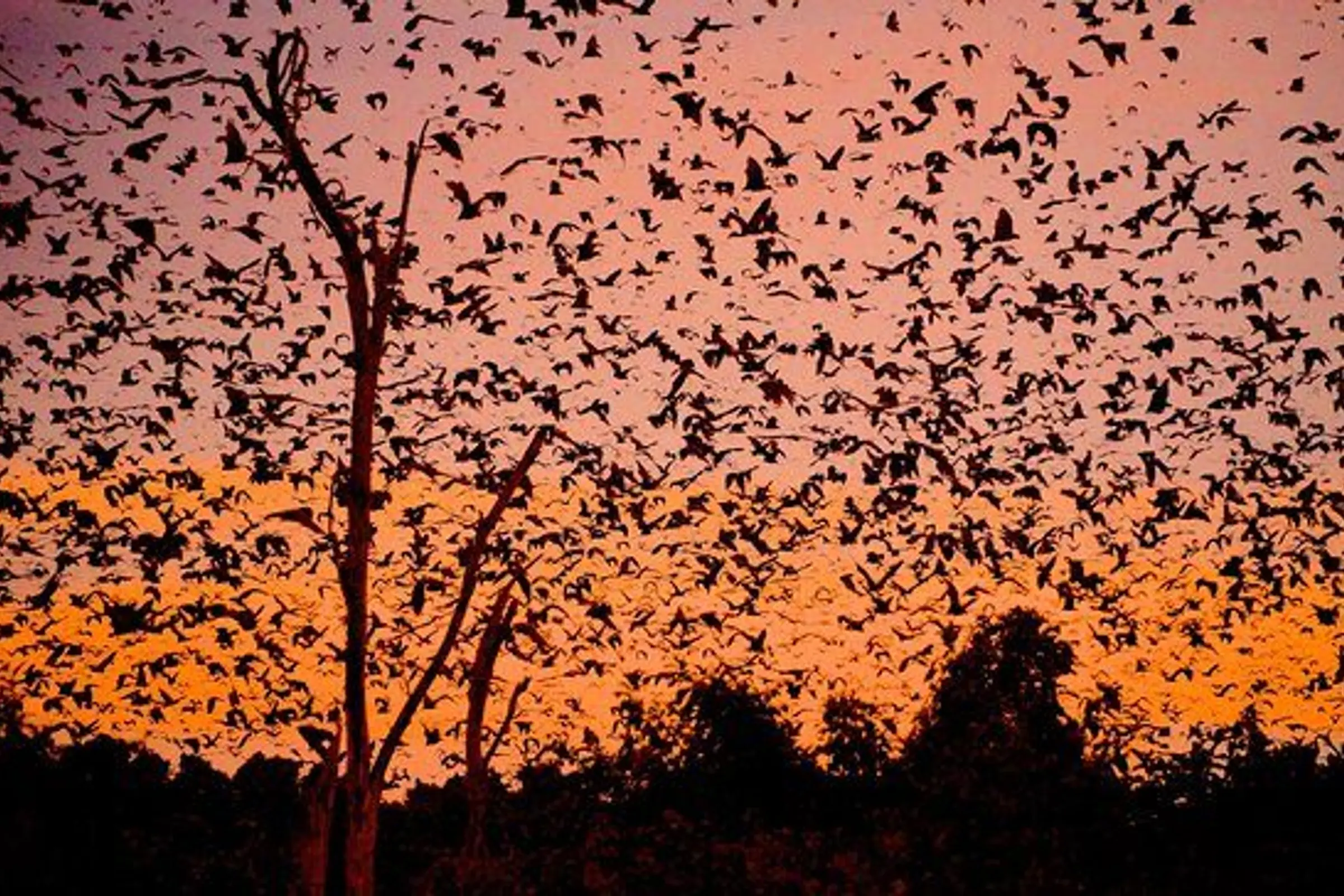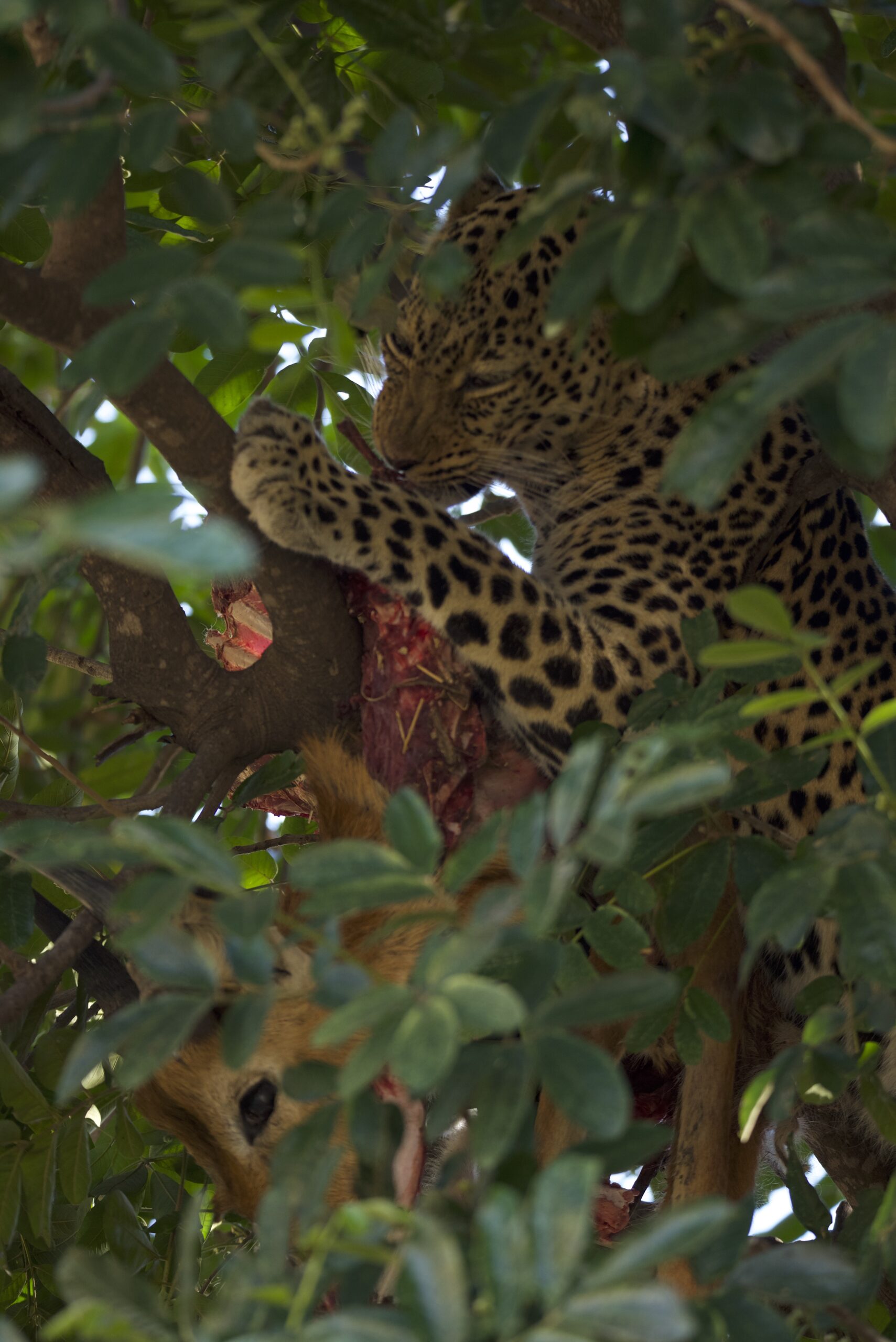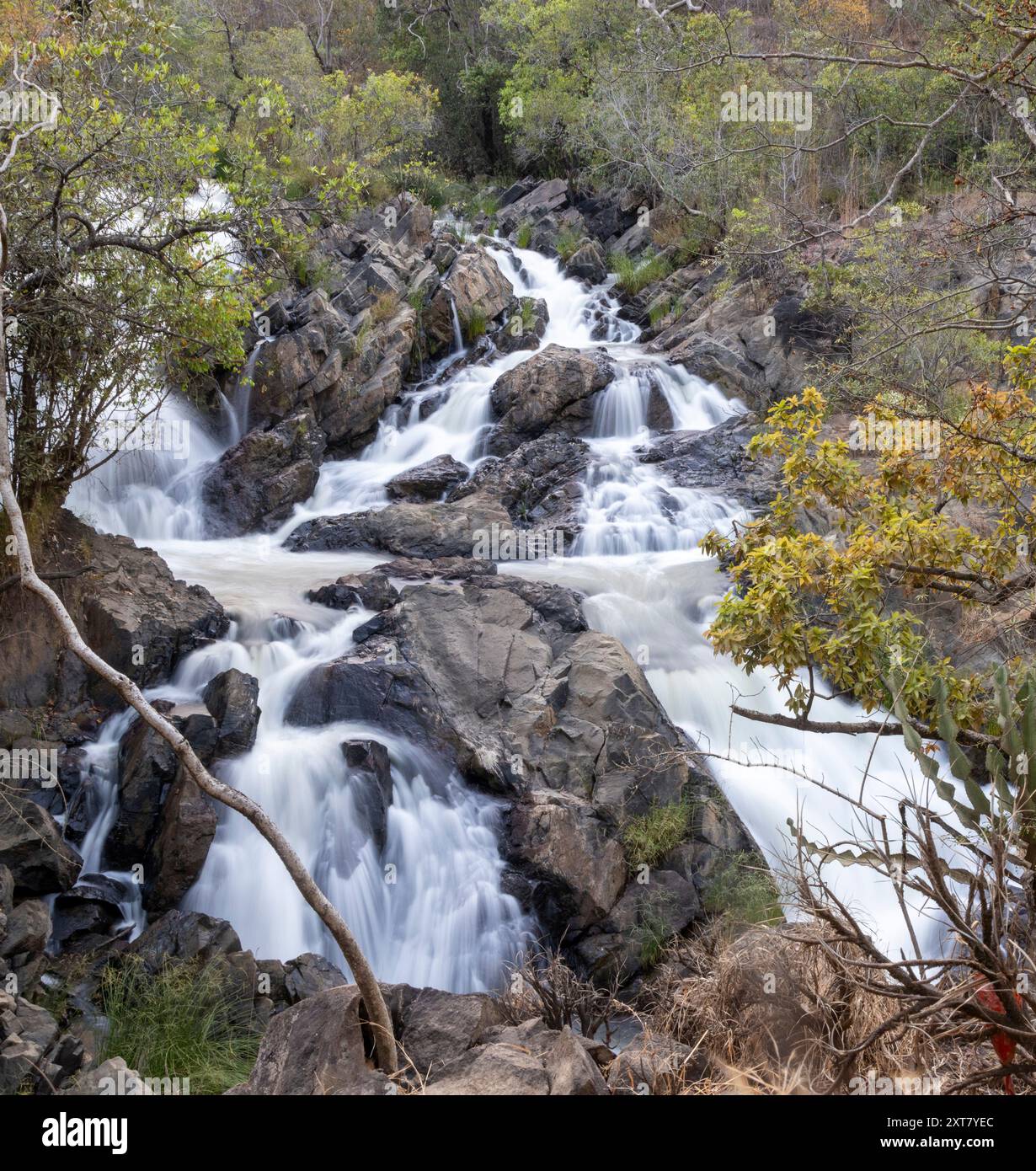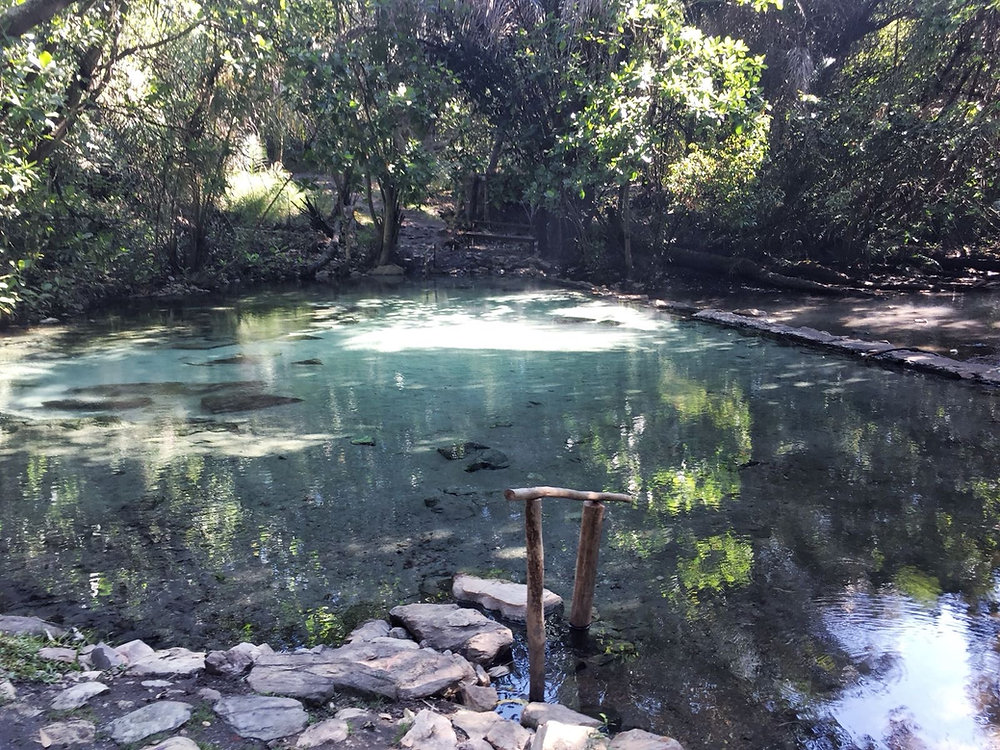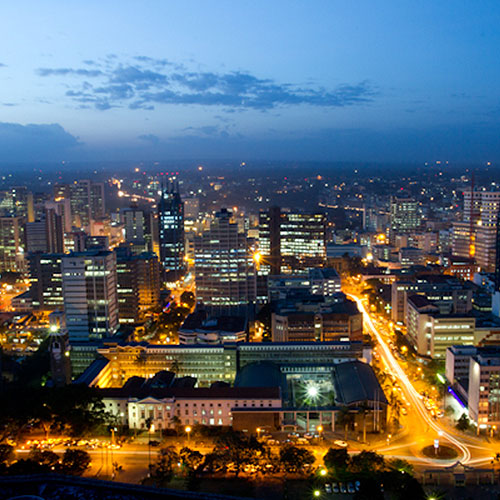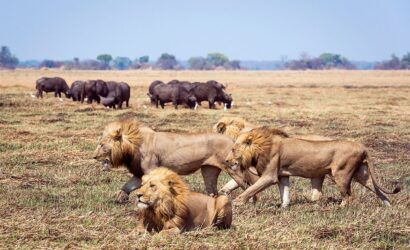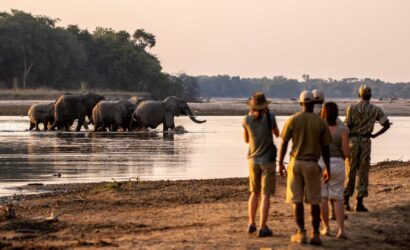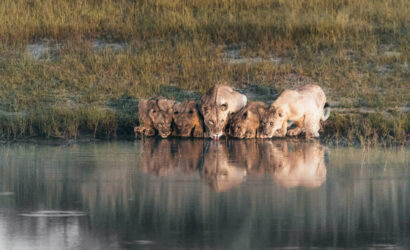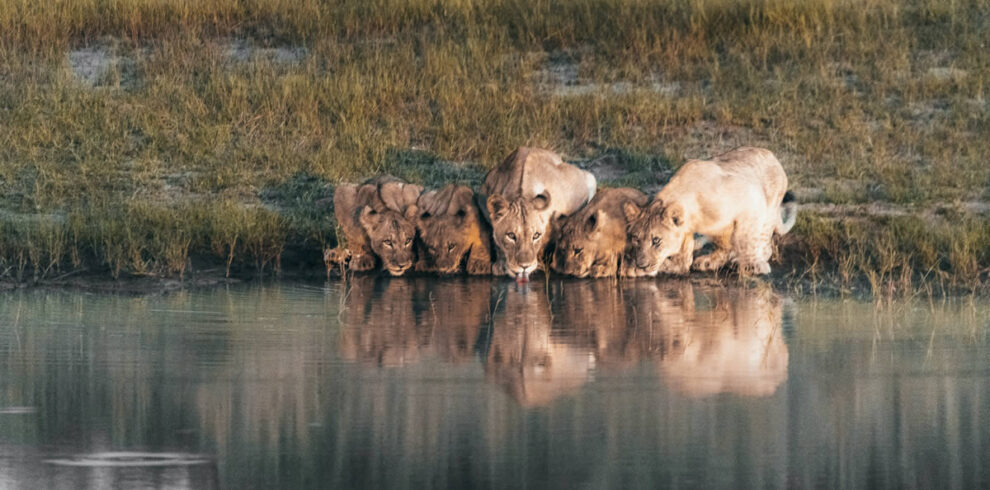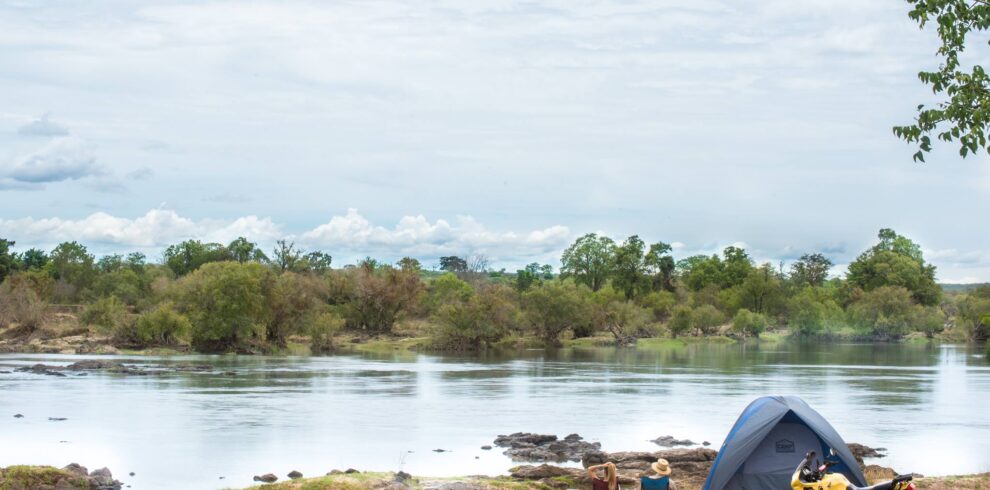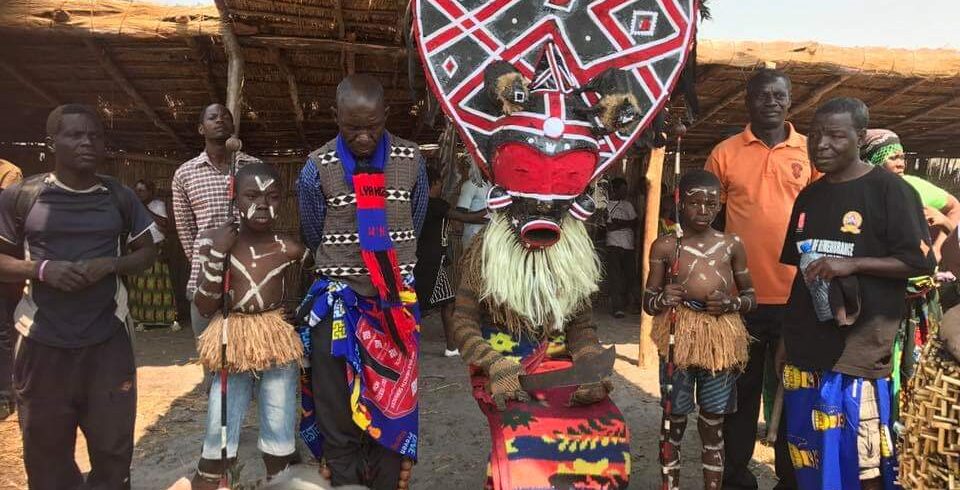South Luangwa (Nsefu sector), Luambe National Park, North Luangwa National Park, Shiwa N’Gandu, Kapishya Hotsprings, Nachikufu Cave paintings, Muchinga Escarpment, Kundalila Falls, Kasanka National Park
Overview
Our WILDERNESS EXPEDITIONS aim to explore some of Africa’s true Last Edens and Hidden Gems, often located far from the beaten path, in pristine, wild, and untamed environments. These Expeditions are particularly suitable for experienced travelers, adventure-seekers and – in general – guests interested in the feelings of remoteness, solitude, and untamed wilderness.
HIGHLIGHTS:
The Northern Route offers a fantastic opportunity to witness more then just wildlife!
Although the itinerary opens with one of Africa’s most famous wildlife destinations (the Luangwa Valley, where it visits the Nsefu sector of South Luangwa National Park – by far the wildest and a much smaller tourists’ presence – Luambe National Park and North Luangwa National Park) it goes on to embrace some of Zambia’s rich history and culture (Shiwa N’gandu Mansion and Nachikufu rock-paintings), Natural wonders (Kundalila Falls, Muchinga Escarpment), Hidden Gems (Kasaka National Park) and much more!
Whether driving through spectacular game, far-away villages, wading through rivers or cutting your way through the thick forest, the feeling of remoteness, wonderment and wilderness will never abandon you!
This Expedition is proposed as Comfortable Camping.
Tailoring options include:
- LODGING (Some areas have an option for lodging: rates available on request)
- NUMBER OF DAYS / NIGHTS
- Etc..
Note: This Safari uses a support vehicle to carry all camping gear, food and luggage for all bookings of 4 participants and above. The support vehicle will depart ahead of the main vehicle and reach the destination in advance, so that by the time guests arrive their camp will be already set-up.
NOTES ON SEASONAL AVAILABILTY:
The Wilderness Expedition described in the itinerary is only available between JUNE 1st and OCTOBER 31st.
Highlights
- Explore Luangwa’s remote parks with fewer tourist crowds.
- Visit Shiwa N'gandu Mansion and Nachikufu rock paintings.
- Discover Kundalila Falls, Muchinga Escarpment, and hidden gems.
- Navigate rivers, forests, and villages in untouched Zambia.
- Support vehicle ensures seamless camp setup and logistics.
Itinerary
Upon arrival at Kamuzu international airport, our guides will collect you from the airport and begin a transfer to Mfuwe via Chipata. You will have a short stop over by Mwami border to get cleared. After border clearance, you will continue the transfer for approximately 156km – 2.5 hrs to reach Mfuwe.
Mfuwe is the closest village from where to access South Luangwa National Park. Even though it is very close to such an internationally acclaimed attraction, it still maintains the spirit and looks of a traditional Zambian village.
You will be transferred to the Nsefu Sector of South Luangwa National Park, where you will spend 3 nights WILD CAMPING in an unfenced wilderness area – the remote wilderness site has no electricity, has bush toilets and bucket showers and offers the most authentic wilderness experience in the valley!
Here, you will spend the next three nights with all meals prepared by the accompanying cook and all game viewing activities done by our resident guides on board of our vehicles. Dinner prepared by your accompanying chef.
WILD CAMPING in an unfenced wilderness area – the remote wilderness site has no electricity, has bush toilets and bucket showers
South Luangwa National Park is the most famous of National Parks is Zambia due to the abundance of wildlife and the great opportunities to spot large predators. In addition to a large population of felines (mostly leopards and lions), it is home to a large number of elephants, hippos, buffaloes and numerous endemic species such as Thorncrofft giraffe, Cookson’s wildebeests, Crashway’s zebras. The Luangwa River has the highest concentration of hippos per km2 in the whole Africa and offers great reproduction and hunting ground for many animals, such as fish eagles, jackals, hyenas, crocodiles, and countless birds. Sunsets on the Luangwa River are unforgettable experiences and the visit to this National Park is consider one of the highlights for any true Africa lover.
Early wake and sunrise breakfast with hot beverages and toasts/biscuits before starting off on your first Game drive of the day. Return to camp around 10,00 and time to relax. Brunch, followed by an afternoon Night Drive that will continue after sunset to maximise your chances to spot nocturnal predators. Dinner at camp, prepared by the accompanying cook and night camping.
WILD CAMPING in an unfenced wilderness area – the remote wilderness site has no electricity, has bush toilets and bucket showers
South Luangwa National Park is the most famous of National Parks is Zambia due to the abundance of wildlife and the great opportunities to spot large predators. In addition to a large population of felines (mostly leopards and lions), it is home to a large number of elephants, hippos, buffaloes and numerous endemic species such as Thorncrofft giraffe, Cookson’s wildebeests, Crashway’s zebras. The Luangwa River has the highest concentration of hippos per km2 in the whole Africa and offers great reproduction and hunting ground for many animals, such as fish eagles, jackals, hyenas, crocodiles, and countless birds. Sunsets on the Luangwa River are unforgettable experiences and the visit to this National Park is consider one of the highlights for any true Africa lover.
Early wake and sunrise breakfast with hot beverages and toasts/biscuits before starting off on your first Game drive of the day. Return to camp around 10,00 and time to relax. Brunch, followed by an afternoon Night Drive that will continue after sunset to maximise your chances to spot nocturnal predators. Dinner at camp, prepared by the accompanying cook and night camping.
WILD CAMPING in an unfenced wilderness area – the remote wilderness site has no electricity, has bush toilets and bucket showers
Early breakfast and departure for Luambe National Park, crossing the Nsefu sector of the South Luangwa National Park en-route.
At just 254 km², Luambe is one of Zambia’s smallest national parks. Situated on the eastern bank of the Luangwa it lies in the heart of the Luangwa valley between Lukusuzi, North and South Luangwa national parks. The park was declared in 1938 and is therefore one of the oldest conservation areas in Zambia.
The wildlife found in Luambe is similar to that of its larger neighbouring parks and includes all the typical large herbivores, carnivores as well as some less well-known species. However, the animals of Luambe are generally present at lower densities than in the bigger parks with the advantage that Luambe is less crowded than its more famous neighbours.
Habitat diversity in Luambe National Park is enormous and within a few kilometres the vegetation ranges from riverine forest, cathedral mopane woodland, floodplain acacia thickets to the sausage tree-dotted open grasslands of the Chipuka plains.
There are over 200 species of bird in Luambe and elephant populations as well as those of lion and leopard are said to be on the increase – so it’s well worth visiting now before everyone else catches on.
You will set camp at Luambe Community Campsite and enjoy an afternoon Game Drive in the park.
Night Camping
Camping in an unfenced, equipped area with shared ablutions including toilets and hot showers
Early wake and sunrise breakfast with hot beverages and toasts/biscuits before starting off for a Game drive in Luambe National Park. Return to camp around 10,00 and brunch, followed by a transfer to North Luangwa National Park.
This remote tract of land, covering 4636 square kilometres, offers one of the finest wilderness experiences in Zambia, if not Africa itself. It is not open to the public and there are no permanent lodges there. Access is with one of the few safari operators granted permission to conduct walking safaris.
The beauty of visiting this Park is the truly remarkable opportunities to experience Africa as it was. It is wild and untouched and you are simply an unobtrusive witness to its natural beauty and drama. Although declared a wilderness area, the North Park, was not open to anyone other than Game Department rangers for more than thirty years. In 1984, Major John Harvey and his wife Lorna sought permission to conduct walking safaris in the area and for many years were the only operators in this remote wilderness.
Then in 1989, two scientists, Mark and Delia Owens, famous for their book ‘Cry of the Kalahari’, were granted permission to set up a research station in the Park. Through their influence and as a means of helping to curb poaching in the area, the authorities allowed entry to a few more safari operators who bring limited numbers into the Park for guided walking safaris and game drives. Their efforts in the North Luangwa are documented in their book ‘Survivors Song / The Eye of the Elephant’.
There are very few roads and you are unlikely to see anyone else for the duration of your trip. Like the South Park, it lies on the western bank of the Luangwa River bordered on the other side by the dramatic Muchinga Escarpment which rises over 1000 meters from the valley floor. Its hazy outline can clearly be seen from the Luangwa River.
There are a number of tributary rivers running through the Park and into the Luangwa which play an important ecological role in the area. The crystal-clear Mwaleshi River trickles down the escarpment in a series of small waterfalls. It recedes in the dry season, leaving many pools along the way, drawing the animals from the bush to its banks in search of water. No game drives are permitted in the Mwaleshi area, and access is by organized walking safaris only.
The vegetation ranges from mopane woodland to riverine forest, open grasslands and acacia thicket. Trees include the beautiful sausage tree, vegetable ivory palms, red mahogany and leadwood.
You will reach Ituba Campsite before sunset and set camp for the night in a fantastic spot overlooking the Luangwa River, equipped with toilets and showers. Dinner around the fire prepared by your accompanying chef and night camping.
Camping in an unfenced, equipped area with shared ablutions including toilets and hot showers
Sunrise breakfast followed by a Walking safari in the park. Return to camp mid-morning and lunch. Afternoon Game Walk in the park. Night will be camping around the fire with all meals prepared by the accompanying cook.
Camping in an unfenced, equipped area with shared ablutions including toilets and hot showers
Sunrise breakfast. Break of camp and head east towards Mushika/ Muzungwe Campsite where we will set camp once more inside a majestic Mopane Cathedral overlooking the Luangwa River.
Lunch prepared by our accompanying chef and leisure afternoon to explore the area surrounding the camp on board of your vehicle or on foot (not included – depending on availability of guides and escorts). Night will be camping around the fire with all meals prepared by the accompanying cook.
Camping in an unfenced, equipped area with shared ablutions including long-drop toilets and hand-pumped showers
Sunrise breakfast. Break of camp and head east towards Nkholo Campsite where we will set camp once more on a picturesque bend of the Luangwa River. Lunch prepared by our accompanying chef and leisure afternoon to explore the area surrounding the camp on board of your vehicle or on foot (not included – depending on availability of guides and escorts). Night will be camping around the fire with all meals prepared by the accompanying cook.
Camping
Sunrise breakfast. Break of camp and head north towards Lufila Falls Campsite where we will set camp once more at the base of the Lufile Waterfalls.
Lunch prepared by our accompanying chef and leisure afternoon to enjoy the Waterfalls. Night will be camping around the fire with all meals prepared by the accompanying cook.
Camping in an unfenced, equipped area with shared ablutions including long-drop toilets and hand-pumped showers
Sunrise breakfast. Break of camp and head west towards Samala Campsite where we will set camp once more in the thick forest of the Muchinga Escarpment.
Lunch prepared by our accompanying chef and leisure afternoon to explore the area with extra activities to be organised on site. Night will be camping around the fire with all meals prepared by the accompanying cook.
Camping in an unfenced, equipped area with shared ablutions including toilets and hot showers
Sunrise breakfast. Break of camp and head out of North Luangwa National park towards Shiwa N’gandu mansion. We will set camp at Kapishya Hotsprings for 2 nights and Lunch prepared by our accompanying chef. In the afternoon, own arrangements to enjoy the Hotsprings and walk around the magnificent gardens surrounding the Shiwa N’gandu property.
Dinner by the fire.
Night Camping
Camping in an unfenced, equipped area with shared ablutions including toilets and hot showers
Morning breakfast followed by a visit of Shiwa N’gandu mansion, a real piece of colonial history in the heart of the African bush. Here we will discover the history of Sir Gore-Brown and his fundamental importance to the history of Zambia. Return to camp for lunch and afternoon at leisure to enjoy the Hotsprings or a Game drive in the property facing Lake Shiwa. Dinner by the fire.
Night Camping
Camping in an unfenced, equipped area with shared ablutions including toilets and hot showers
Sunrise breakfast, break of camp and early departure. After leaving Shiwa N’gandu, we proceed south-west up towards Mpika, where we will stop for a quick stock-up in supplies before proceeding to visit the Nachifuku Caves, a site with magnificent rock paintings protected by UNESCO. Afterwards, we will proceed to the astonishing surroundings of Mutinondo Wilderness, a wild area on the Muchinga Escarpment where nature rules untouched. Set up camp in a scenic campsite and dinner prepared by our accompanying chef.
Night Camping
Camping in an unfenced, equipped area with shared ablutions including toilets and hot showers
Mutinondo Wilderness is paradise for the free spirits who want to hike, swim, cycle and generally celebrate pristine miombo woodland, streams, waterfalls and inselbergs, over 60 km of well-maintained and signed tracks, and views from horizon to horizon without evidence of human activity. Mutinondo is unique in that it is a proper wilderness where you can hike freely, swim in rivers and waterfalls and enjoy nature at its best.
All meals prepared by our accompanying chef and activities to be determined on site.
Night Camping
Camping in an unfenced, equipped area with shared ablutions including toilets and hot showers
Sunrise breakfast and break of camp. We will leave Mutinondo Wilderness as early as possible and start heading south-west. Along the way we will stop to visit Kundalila Falls while having a pic-nic brunch. In the afternoon, we will continue towards Kasanka National Park, where a short game drive will bring us to our campsite. Set camp for the next two nights, with all meals prepared by our accompanying chef. Dinner around the campfire prepared by our accompanying chef and night camping.
Camping in an unfenced, equipped area with shared ablutions including toilets and hot showers
Kasanka National Park is a small yet very interesting National Park in the northern region of Zambia. It is home to some of the most unique wetlands of the region including the Bangweulu swamp, the so called “Zambian Okavango”. Here, we can have the chance to see some rare endemic antelopes, such as the water-based Sitatunga, and the rare Shoe-billed stork. Also, in the region, is located the mausoleum where David Livingstone died and where his heart was buried.
During this day you will enjoy either a Sitatunga Game Drive (to try and spot the rare and endemic Sitatunga antelope) and a Walking Safari (June to September) or a Unique Bat Experience involving Bat viewing and Bat walks. Lunch and Dinner prepared by our accompanying chef and night camping.
Camping in an unfenced, equipped area with shared ablutions including toilets and hot showers
Breakfast before sunrise and break of camp. Departure for Lusaka at sunrise with a lunch break along the way (packed Lunch). Upon arrival (approximately 550km, mainly tarmac road, 10 hours depending on road conditions), you will check in at Wild Dogs Lodge, where you will spend your last night in Zambia on a B&B rate. Dinner in Lusaka not included.
Breakfast at the lodge. Depending on the time of your flight you will be taken to Lusaka airport for your international return flight. End of arrangements.
Rates
The Rates Include:
- All accommodations indicated in the itinerary, with the specified arrangements
- All meals specified in the itinerary
- Vehicle, fuel, certified professional local guide (English speaking), chef
- All Park Entry fees
- All game-viewing activities specified in the itinerary
The Rates Exclude:
- International flights
- Alcoholic beverages
- Visas
- Activities not offered by African View Tours and Safaris and not specified in the itinerary / specified as “optional”
- Personal comprehensive insurance
- Personal expenses
- Tips (Tips are not compulsory, but always welcomed. We suggest: 5 US$ per day per person /couple for the chef, 10 US$ per day per person /couple for the local guide, on discretion for the international guide, when present)
- Anything not stated under “standard inclusions”
FAQs
Annapurna Base Camp is a Grade B or a moderately difficult trekking route. So any fit person can do this trek, even if you do not have any previous experience. You should be aware of what to expect and mentally prepare for it. Then, as long as you will too, you can.
On average, you walk about 4 to 6 hours per day. One or two days can be as less as 3hrs and one or two days can be as long as 7hrs.
The highest altitude reached is 4190m. This is the elevation of Annapurna Base Camp. ABC is the highest we will climb in this trek.
Yes, you can charge batteries en route. Charger should be brought. There are hot shower facilities as well. You may have to pay a certain amount for both ($1-$2). Negotiate. Also, a hot water facility could be free at a lower elevation.
No. There are no ATMs on this trek route. You will have to draw enough cash in Pokhara or Kathmandu. There are a number of ATMs in these cities. Everything is paid in Nepali rupees. So money should be exchanged before the start of the trek.
Yes. The Internet can be accessed in most places. Sometimes, there might be some technical problems. The Internet in Nepal is not as fast as you are used to and at times you can just lose connection.
Not really. It depends on you. If you want, ABC trekking can be done independently. You could hire a guide and a porter by yourself instead of going through an agency or not hire a guide at all. Although, not having a guide can be a little problematic during the offseason.
It really depends on you. Is it your first time in Nepal? How confident are you of being able to find your way around? How pressed on time are you? If you go through an agency, it will be costlier but everything will be planned. You will only have to come, trek and return.
For the Annapurna region, pay for guides range from $20 to $30 per day and porters take $15 to $25 per day.

